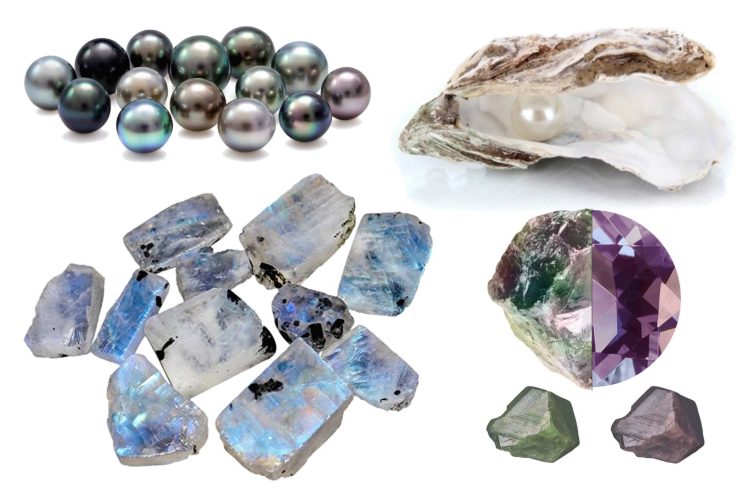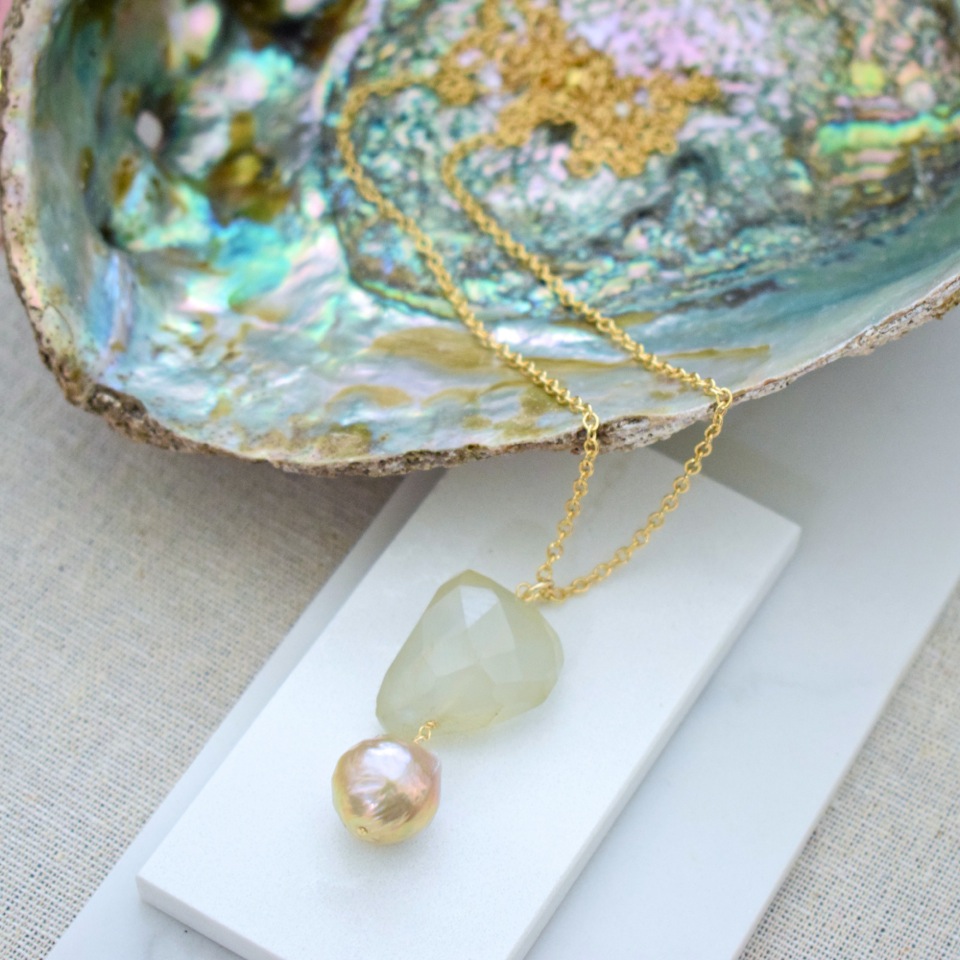June babies, you have options! Not only do you have the traditional birthstone, pearl, you also have two other gemstones to call your own: moonstone and alexandrite.
All three gemstones are known for their distinct, color-bending effects: pearl with its classic pearlescence; moonstone with its adularescence (the effect of a moving or floating light or sheen); and alexandrite with a notable, full-color change, typically between hues of green and purple (known as “the alexandrite effect”).
Pearls
Pearls are the only “gemstone” that grows inside a living mollusk (either an oyster or mussel). Due to their rarity and fascinating origins, ancient people treasured them, believing they were teardrops from heaven. They are now cultured throughout the world, with the most well-known being the giant white South Sea pearls from Australia and Southeast Asia and the rich, peacock-sheen black Tahitian pearls from French Polynesia.
Pearls are associated with sweetness, innocence, purity, and humility. They are thought to bring the wearer long life and prosperity. As treasured heirlooms, they also symbolize integrity, generosity, and wisdom gained through experience.
Moonstone
Moonstone is in the feldspar mineral group, which rates between 6 to 6.5 on the Mohs hardness scale. Though it is found in a variety of colors, the most well-known is white (or rainbow) moonstone. The finest specimens are colorless with a blue sheen of adularescence. Varieties can be found around the world, including both North and South America, Asia, and Africa.
It is a mythological stone, fondly held by the ancient Greeks and Romans as amulets of their lunar deities, as well as Indian mystics who claimed it to be solidified moonbeams. White moonstone is a stone of intuition, inspiration, inner growth, strength, and calmness. With its yin quality, it also represents the Divine Feminine energy, is good for fertility, and carries the energy of the new moon, making it perfect for “new beginnings.”
Alexandrite
A rare variety of the mineral chrysoberyl, alexandrite is a phenomenal, color-changing stone. In daylight or fluorescent light, they typically present as green to bluish-green, changing to purple or red in incandescent light. This effect is not happening within the stone itself but within the human eye as we perceive the stone’s mineral composition in different spectrums of light. Alexandrite comes in at a relatively-hard 8.5 on the Mohs hardness scale.
Major deposits of this gemstone were first discovered in 1830 in the Russian Ural Mountains, and thus it was named after the young heir apparent to the throne, Alexander II. It is now mostly found in Brazil, Sri Lanka, and East Africa. Fine quality stones are very rare, especially in larger sizes, making alexandrite one of the most expensive colored gemstones.
It is considered a stone of good omen, bringing luck and good fortune. It is said to provide confidence and improved self-esteem, as well as help balance interaction between the physical and spiritual worlds.Enjoy a special offer just for Breathe Together readers: 10% off all Indriya jewelry purchases with the code BREATHELOVE – check out the selection of June birthstone pieces now!
















One reply on “The Meaning Behind (All Three!) June Birthstones”
Awesomeness